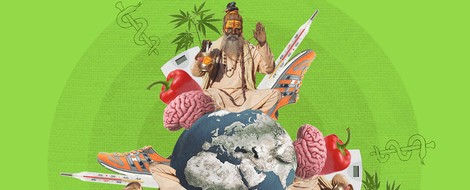Your podcast discovery platform
Curious minds select the most fascinating podcasts from around the world. Discover hand-piqd audio recommendations on your favorite topics.

piqer for: Health and Sanity Global finds
I was born in 1987 in Bucharest. I studied Psychology and Educational Sciences at the University of Bucharest. For two years I worked in a psychotherapy practice, dealing with gambling addicts. I'm an independent reporter, writing and doing video reportages mostly about social and political issues. I am currently based in Jena.
The Benefits Of Being Messy
In this episode of Hidden Brain, Shankar Vedantam and his guest, Tim Harford, explore the concept of messiness and how it could benefit us, despite widespread belief that we should be tidy all the time. All our lives — from our childhood to when we’re employed adults — we’re told that we should clean up, tidy up, put things in order. But what if tidiness doesn’t help us all that much?
Economist and writer Tim Harford makes the case in his new book Messy for messiness being our friend, precisely because through the disruption it causes, it has the power to change our lives. To exemplify, he tells about jazz musician Keith Jarrett, who played in Köln in 1975 an “unplayable piano”. Jarrett discovered before the concert started that the instrument was almost completely unusable and out of tune, with the keyboard and pedals not working properly. He went through with the concert, though, and what came out of that performance was one of the best selling jazz albums in history.
Further on, other situations are discussed where people are knocked off course and they’re forced to break their habits, like Martin Luther King Jr’s famous “I have a dream” speech, the tidy desk experiment.
The conversation also focuses on messiness in public life, given the political context of the UK and the US, where politicians who regularly go off script and play with chaos are in power.
The argument that Harford is making is that a little shock to the system, a little stepping beside the line can actually help us evolve. We can turn an inconvenience into an opportunity, find new solutions to problems. Tim Harford sums it up perfectly: “When everything is perfect and tidy, we are on autopilot, we’re not paying attention.”
